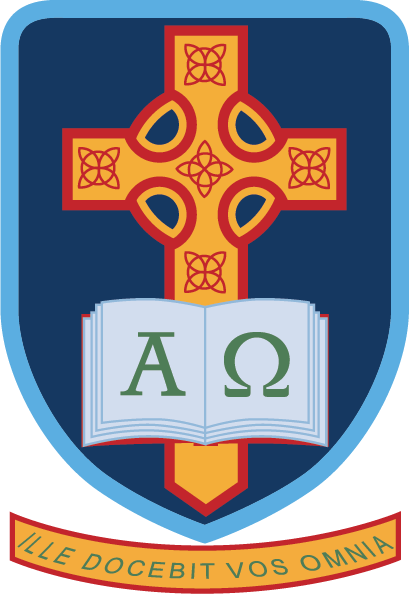
Mathematics
Overview
Mathematics aims to develop and strengthen a range of knowledge and skills. Among these, it aims to help pupils to:
- develop their understanding of mathematics and mathematical processes;
- develop their reasoning skills and their ability to recognize incorrect reasoning;
- extend their mathematical skills and techniques for use in more difficult, unstructured problems;
- understand the coherence and progression in mathematics and how different areas of mathematics are connected; and become aware of the relevance of mathematics to other fields of study, the world of work and society in general.
Mathematics
Team
- HOD: Mr C Wray
- Ass HOD: Miss L McCaffery
- Mrs J Barker
- Mrs L Callaghan
- Mrs K McCloy
- Mr S Boyle
- Mr F Quinn
- Mr S Knipe
GCSE
Exam Board: CCEA
All pupils in Year 11 and 12 study Higher level GCSE Maths;
Year 11 GCSE classes are split into three groups:
Group 1 will do their full GCSE Maths in Year 11 studying the modules M4 and M8 and then study GCSE Further Maths in Year 12;
Group 2 will be studying M4 in Year 11 and either M7 or M8 in Year 12;
Group 3 will be studying M3 in Year 11 and M7 in Year 12;
COURSE CONTENT:
YEAR 11 – Pupils will do either M3 or M4:
M3 topics include: calculating HCF and LCM, calculating upper and lower bounds with multiplication and addition problems, understanding of an equation and an identity, expanding double brackets, factorizing quadratics with coefficient of x2 of 1, use of compound measures, understanding of the terms sample and population, calculating averages, cumulative frequency, percentages, solving equations, Pythagoras and trigonometry, coordinate geometry and calculating lengths of arcs and areas of sectors;
M4 topics include all in M3 along with calculating upper and lower bounds with division and subtraction problems, histograms, sampling, circle theorems, more complex quadratic factorizing, algebraic fractions and solving equations with algebraic fractions, gradients of perpendicular lines and more complex mensuration problems;
YEAR 12 – Pupils will do either M7 or M8:
M7 topics include: standard form, transformations, substitution into formulae, rearranging formulae, similarity, inequalities, drawing and interpreting real life graphs, relationship between enlargement and volume of shapes, probability, use of surds and pi in exact solutions of calculations, calculation using index notation including positive and negative indices, nth term of non-linear sequences, recognize and sketch non-linear graphs, direct proportion problems and product rule for counting;
M8 topics include all in M7 along with a knowledge of irrational numbers, recurring decimals, index notation, growth and decay problems, surds, solving one linear and one non-linear simultaneous equations, sketching exponential graphs, graphical solutions of equations, interpreting gradient as a rate of change, equation of a circle and finding the equation of a tangent to a circle, inverse proportion, sine/cosine rules and area of a triangle, 3D Pythagoras and Trigonometry problems, enlargements with a negative scale factor, length/area/volume ratios of similar shapes and more complex probability problems including non-independent events.
A LEVEL
Exam Board: CCEA
GCE Level Mathematics aims to develop and strengthen a range of knowledge and skills. Among these, the course aims to help pupils:
• develop their understanding of mathematics and mathematical processes;
• develop their reasoning skills and their ability to recognize incorrect reasoning;
• extend their mathematical skills and techniques for use in more difficult, unstructured problems;
• understand the coherence and progression in mathematics and how different areas of mathematics are connected; and
• become aware of the relevance of mathematics to other fields of study, the world of work and society in general.
GCE Level Mathematics offers students three qualifications. These are:
AS Level Mathematics
A Level Mathematics
AS Level Further Mathematics
